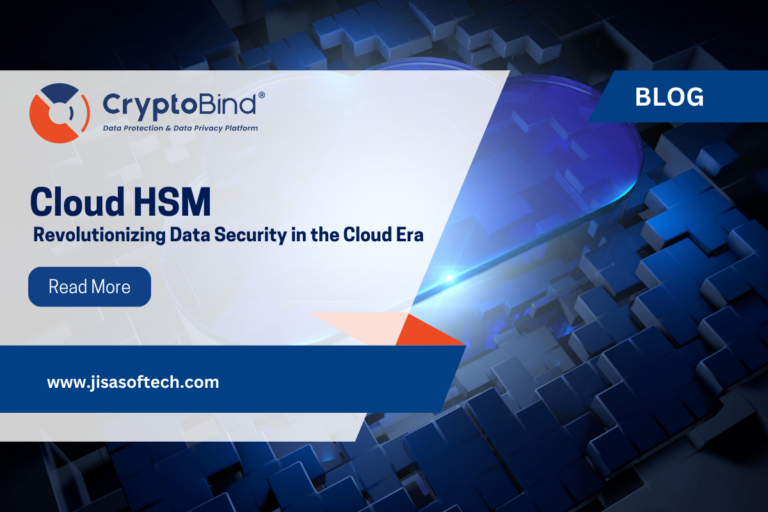Benefits and Importance of Enterprise Key Management Solutions
Cryptography is the core of cybersecurity, and it can effectively safeguard consumer privacy as well as sensitive data from attackers. When encrypted data is taken, what could have been a serious breach becomes a minor incident: something to continue protecting against, but with little impact and may not even necessitate public disclosure.
Encryption relies on cryptographic algorithms and keys; efficient key management is critical for effective encryption: poor key management can make even the most powerful algorithms useless.
Modern, effective encryption is never cracked, although it is frequently bypassed. It makes no difference how much encryption is used: if keys are not securely kept, a hacker can easily access the crown jewels, causing severe financial and reputational damage. Key management is just as vital as good encryption, and it is all too often the Weak point of organizational data security and privacy programs.
Any encrypted communication is only as secure as the system’s keys that locked it. Any communication utilizing those keys can be decrypted if the keys are compromised by hackers, negligence, or other reasons. So, how do these keys stay secure?
Encryption key management refers to the tasks of securing, storing, backing up, and organizing encryption keys.
The usage of encryption in the enterprise has increased significantly as a result of high-profile data breaches and regulatory compliance requirements. A single company may use dozens of different encryption methods, some of which are incompatible, resulting in thousands of encryption keys. Each key must be kept safe, protected, and easily accessible.
Importance of Key Management:
One of the most crucial basics for any organization concerned with security and privacy is key management. Significant data losses and regulatory compliance requirements have resulted in a major growth in the use of encryption within corporate data centers. Companies can manage the activities associated with preserving, storing, backing up, and organizing encryption keys by including encryption key management with other security measures.
The foundation of all data security is key management. Because data is encrypted and decoded using encryption keys, the loss or compromise of any encryption key would render the data security mechanisms in place ineffective. Data transfer through an Internet connection is also protected by keys. To guarantee that firms employ best practices when preserving cryptographic keys, keys adhere to particular standards and laws. Only people who require access to well-protected keys should have access.
To ensure that the keys are secure, key management systems are often utilized.
· The required key length and algorithm were generated.
· Well-guarded (security architects generally prefer FIPS 140-2 complaint hardware security modules)
· Only authorized individuals can manage and view the data.
· Rotated on a regular basis
· When it’s no longer needed, it’s deleted.
· Their usage is audited on a regular basis.
By implementing a centralized key management system, you will improve key management life cycle efficiency and assist your IT departments in developing appropriate key management policies that scale with your organization.
Benefits of Key Management System:
The following are some of the advantages of a centralized key management system:
Protection against threats has been improved – Comprehensive key management solutions can help your company stay safe from a variety of security risks. Secure APIs and communication channels for key distribution and use are provided by enterprise key management systems. They also handle the deletion of keys at the end of their lifecycle, preventing any unforeseen security gaps that could leave data susceptible.
Use your in-house security team more effectively — Key management solutions automate procedures at a large scale, allowing you to save money on manual key management. Professional key management frees up resources for in-house security teams to concentrate on essential tasks and improve overall security.
Cost-effective, flexible solution – Key management solutions automate procedures at a large scale, allowing you to save money on manual key management. Scalable services allow businesses to employ an HSM as a service rather than purchasing and maintaining their own in-house device.
Create standardized Cloud encryption standard – Enterprise key management is especially crucial for businesses that have moved parts of or all of their operations to the cloud. Because each environment has its own encryption approach, cloud solutions might make encryption key management unreliable.
Use security at the hsm level – HSM providers‘ key management solutions enable companies to benefit from HSM-level security with a single administration approach, regardless of where keys are utilized.
It’s a move that’ll be welcomed across the board. In today’s security industry, the paradox is that the more advanced the attack vector, the simpler the solution we need as users to address the problem. Employees will always look for less secure solutions, so implementing more efficient, easy-to-manage, cloud-compatible key management systems will assist to take our private data protection to the next level, leaving hackers in the dust.
About Us:
JISA Softech is a cryptography-focused information technology company based in India. We offer cryptographic solutions to financial institutions, manufacturers, enterprises and government agencies. Our primary product lines include industry-compliant Hardware Security Modules, Key Management Solutions, Tokenization, Encryption, Aadhaar Data Vault, and Authentication solutions. All our Cryptographic solutions are sold under the brand name CryptoBind. Our innovative solutions have been adopted by businesses across the country to handle mission-critical data security and data protection needs.
To know more about our solution contact us:
Website: www.jisasoftech.com
Email: sales@jisasoftech.com
Phone: +91-9619222553


